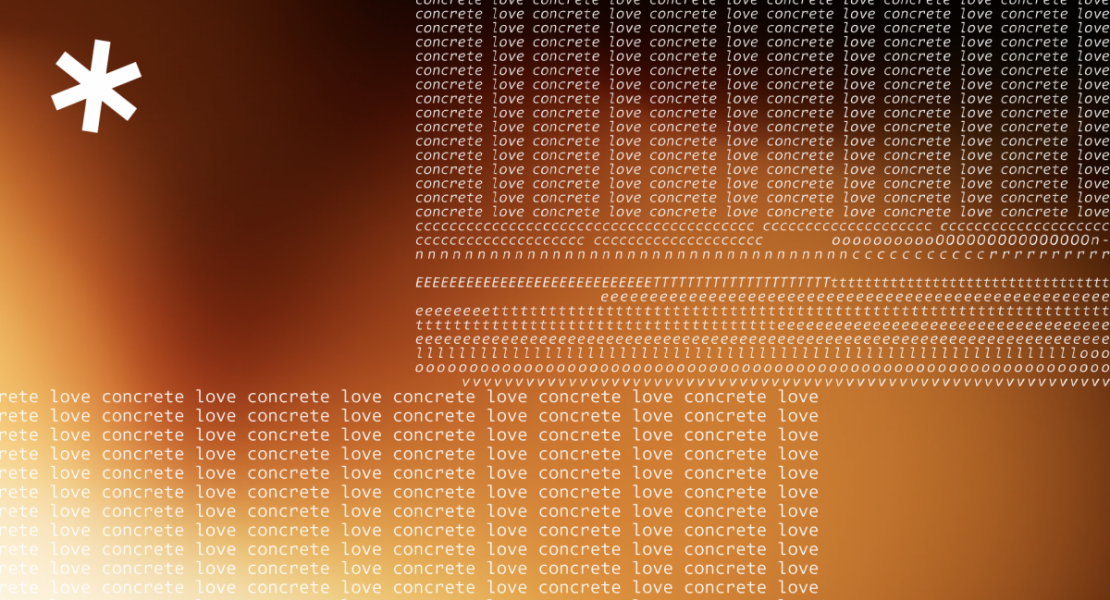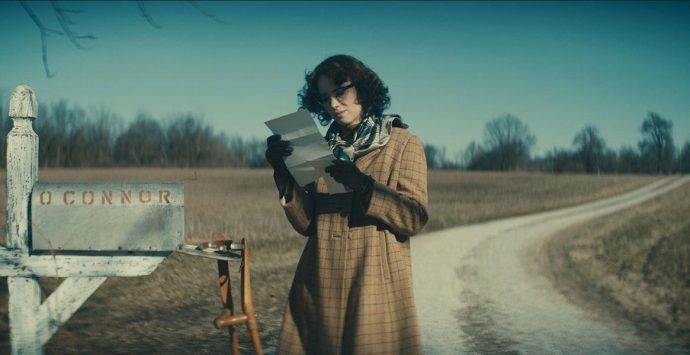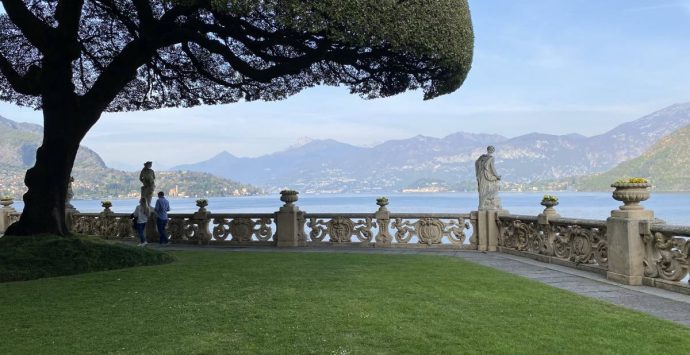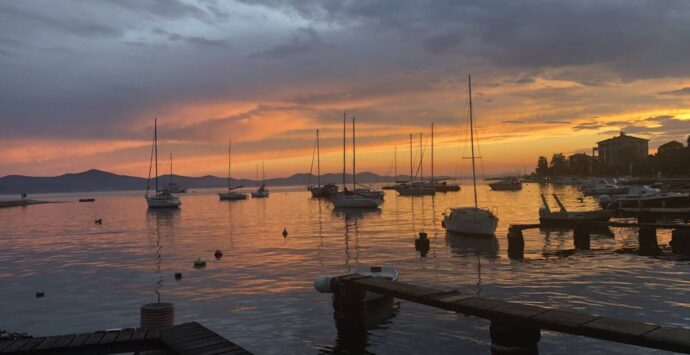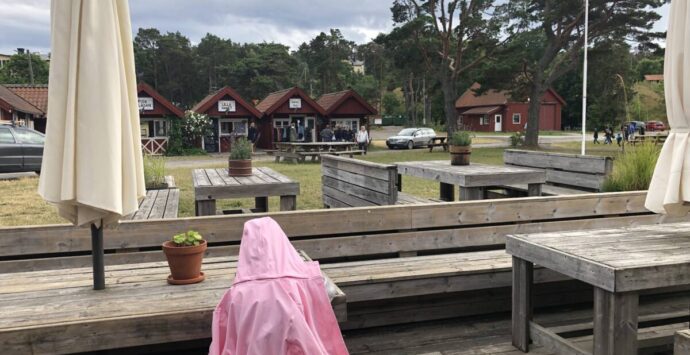
I used to go to conferences and events before COVID19. My curiosity drove me to explore different topics, different trends within climate, sustainability, art, fashion, technology, AI. I met different people, experts in different fields. I was bored with some of them, got inspired by some of them. I made sure to approach the people who really inspired me for a more in-depth interview. Tim Leberecht is one of these inspiring people. I met him at SIME in November 2019 in Stockholm, heard him talk about Business and Art and then on a panel about AI, so I decided to interview him.
While I was working on the interview afterwards, COVID19 happened. It seemed that all the magic and charm disappeared from this world – fear took over, people lost their jobs, homes, loved ones, many lost their lives. Now, in 2021, not even post COVID19, but still very much into it, we all still tremble and re-evaluate our lives and the world we live in. Disappointed with companies and corporations, even governments, now we re-arrange our priorities. Most of us decide to devote more time to the things that are meaningful to us – love, family, nature, beauty, inner peace. I for one discovered how vital it is for me to have human contact, to socialize, to travel, to be able to go to an art gallery or a concert, to exchange ideas live and not be glued to the computer screen each time I need human interaction. I know, all these things are hard to do in a lockdown. And as we are patiently waiting for the Third Wave to wash away and for most people to get vaccinated, I am also re-evaluating and looking forward to this new world we are going to build post-COVID19.
And I think that today we need even more art and beauty in our lives, the marriage of business, meaning and art. So I decided to go back to Tim and ask him for a re-fresher of that interview I took almost a year ago.

Hi Tim, where are you now?
In Berlin, happy that the German government has finally sorted out the vaccination process.
How did COVID19 change you, your priorities, your projects?
It made me appreciate the small things, the essentials. Not too sound too dramatic, but it reminded me of my own mortality and of what truly matters.
More broadly speaking, I believe the pandemic has exposed many of the pre-existing cracks in our society, and my hope is that we seize this historic opportunity to reimagine and rebuild our economies and societies so that they are more inclusive, more sustainable, and more whimsical – in other words, more beautiful.
This is also the mission of the House of Beautiful Business, the global community I co-founded in 2017. The pandemic has made our work even more urgent, and it has forced us to accelerate towards becoming a hybrid, digital-IRL platform able to reach new audiences worldwide. Before COVID, the House was a membership program built around our annual flagship gathering in Lisbon in the fall; now it is a truly global movement with more than 30 local Chambers in cities around the world, ongoing online programming, leadership and development programs, collaborative projects for our members (we call them House Work), and a growing body of knowledge and best practices that can help catalyze the shift from business-as-usual to business that is beautiful.
How do you marry Business and Art, and AI and Art? Is it still valid in this new world that awaits us?
Art is important for our humanity. Business is often perceived as cold-hearted, and a business leader as basing their decisions on rational decisions and data. We did a session once where BCG (management consulting company) did a poetry and business intro. Why? It introduces emotions and allows you to show yourself as a real human being rather just this pseudo rational self. We spend so much time at work so we cannot just reduce it to this slice of human experience.
What is your background?
I studied Cultural Studies and I was a musician, so I was trying to have an artistic career without much commercial success. But now I came home – combining my creativity with business, which to me business is fascinating – the last remaining adventure of mankind. Where we form identity and test ourselves.
Art and business, how do they connect?
They do connect, and art moves us.
We all need these raw emotional experiences and nothing in business gets done or at least no person will do anything without really being emotionally engaged. I mean everything else is superficial extrinsic motivation – money and so on.
We know that it only goes so far, we all know from research that the best motivators are intrinsic – when people really believe in an organization or a cause, and are really inspired, then they get motivated. And people are inspired if they fall in love with a story, or an idea, if they are really touched. If someone sees them like no one has ever seen them before or sees them as the true self that they really are. And that is exactly the kind of experience you have when you watch a movie, engage with modern art, read a poem. It just reveals something about humanity that might not be on the surface. And I think that creates a much more powerful culture within organizations than the control and command, or incentives or the power point chart stating benefits. No one believes in that anyway.

Beautiful AI, what does it mean?
Romanticism, beauty and business, at first glance it seems like a contradiction. We have used AI primarily for efficiencies or to become faster, and it is almost like a waste of this technology. I think we need to use AI to create a broader landscape of emotions. We know AI is really bad at analyzing our emotions so it will be interesting if we use AI to create new emotions, for example – do new emotions exist in the gray zone?
Are you familiar with The Dictionary of Obscure Sorrows? It is a book that is describing an emotion that is typically German and there is probably a whole other range of emotions that we do not fully understand or that do not exist yet. That is what I am looking for.
The other aspect of AI is the one where AI goes beyond being human centered. So it is not about us humans getting ahead, us being in control, us humans exploiting resources. But we should treat AI as a stakeholder, as another class of being and that it enriches our lives by being different, by being weird.
So we need to keep AI happy?
Not keep it happy, but treat it with respect. Of course, it is not organic life, but it will assume power, based on what we feed it. And it will become a character and it already is, and it will do things with us that will have an impact. So we should treat AI with dignity and consider it as a form of consciousness or the world expressing itself. Non-Western cultures, like animist cultures, such as Shinto in Japan, they assume that every piece of grass, any machine has a soul, a spirit. And it is interesting to apply this to AI – why do we assume that only we have a soul and spirit? Animals do, and we know that they are much smarter than we thought decades ago. And the same is true about nature. So I think it is interesting to think about AI as a portal, as a way of consciousness expressing itself. And treating it with respect, rather than using it as a servant.
AI and Art? What do you think about AI writing music, songs, doing paintings?
AI is very good at simulating Van Gogh or Beatles music. If you listen closely you feel that there is something missing, that it is somehow mechanistic.
It is two things AI is not good at – first, it is not imperfect. So when it does something it does it really well, because it has been trained to do it flawlessly. And anything interesting in this world, that you can relate to, is flawed. Vulnerability, imperfection, the cracks through which the light comes in – that makes us human, that is interesting, attracts us.
So you can program cracks or flaws into AI but that is still not going to have the same randomness that we humans have. The other quality that AI is missing that I think is at the source of any artist is suffering. AI cannot suffer and will never be able to suffer. It cannot feel physical and emotional pain yet, and so much of what we express, at the very core, comes from a wound that was inflicted on us, a suffering. So the art AI will create will never have the same depth, soul and profoundness. However, we can instill it, so it has this deeper quality rather than just a computational analytical mind that it is right now. May be time will come when the uncanny valley of what is human and what is artificial will become blurry and we can co-create with AI and learn from AI. And it is a real collaboration.
So you believe in this symbiosis in the future with AI?
I think it is a challenge – it will symbiotic and it will be adversarial at times but it will not be an us vs them because we might lose that. So it will be a symbiosis and we just need to embrace it. It will be part of our life and it is a form of being that we have to co-exist with.
Do you touch upon the ethics of AI?
It is a can of worms, the ethical dilemmas, how do you decide between the life of an individual and the life of a group, which one is more precious – such as in autonomous vehicles. Biased data – the data that we have does not cover the whole population, which in and of itself is a challenge. Malicious AI – drones, weapons, so it needs regulation. It also needs a lot of foresight in terms of how we can optimize life to decide which life is worth living. So the best way is to think of the best and worst scenarios and find solutions and be practical.
The House of Beautiful Business?
We started in 2017 in Barcelona, it was really successful – people were craving these more intimate and experiential ways of tackling business questions, technology and humanity. Then we moved to Lisbon, we had third edition in 2019 and run it before Web Summit. We wanted to attract people who were in town already, 60 000 people. Now people just come to us. We love Lisbon, we had 600-700 people and it still has this very intimate playful format. HBB as a safe space to have different conversations, a lot of art and play, social experiments, talks and workshops. So it is not your typical business conference, very different.
The idea is to create an experience over five days that really changes your life as a person and as a business leader. The two are now inseparable. We intentionally design it as an intimate experience, pull people out of their comfort zones.
We do not have name tags – small feature, huge impact – not looking at someone’s chest thinking – are you of value to me or not. So very different. We have a silent party at the end – we sit very silently. We had an immersive dance performance in a bank which we took over and transformed. So it is a strong sense of community but it is also and individual journey. We want to embody a different way of doing business. People come back and say: I was hoping to get connections or leads, but I came back and changed how I look at my team and change the way I lead. Many people leave their jobs, or they make drastic changes in the way they run their organizations. So I think it is this overwhelming inspirational experience.
Like a switching of the mind?
It is, and like switching to something new and bringing different experiences on business and vocabulary. We had this session on sadness in business or melancholia, always trying to juxtapose things that do not belong in a typical business setting.
What is happening in the future?
I’m finishing a book about losing, that I have to submit next. HBB – growing community, to stay connected. How do we scale it? How we can help the community have an impact? Chambers of Beautiful Business – we help fund them. We did one in Stockholm in June 2019. About climate change – 15 people were the small chambers, some bigger ones had 150 people.
What about the new book?
The new book started as a philosophical essay about losing – interviewed a number of people – homeless person, so who used to be an account. I research strategies for losing – more, how do I turn it into something meaningful. The main characteristic of a civilized society is that we can be losing without being a loser. I think this is quite beautiful and I want to give my readers the license to talk about it. Losing as part of the human condition. All I am trying to do is break some barriers and allow people to be more vulnerable. And if we can apply that to business, it will be great as well.

Photos: House of Beautiful Business
What kind of a world do you think we will create post COVID19? Or do you think that everything will just go back to the way it was before?
For those of us less privileged than I am, the pandemic was a life changing disruption that brought a lot of suffering and tremendous pain. It will be hard to recover. Nothing will ever be the same again. For the privileged of us who were confronted with less existential implications of the pandemic, we’ll see a return of hedonism, of a love for life, leisure, and pleasure. And in many ways, the pessimist in me thinks, we will swiftly retreat to what felt “safe” before the pandemic, to the old conventions. But the optimist in me thinks that we will use this crisis to create something better, more beautiful for all of us.

